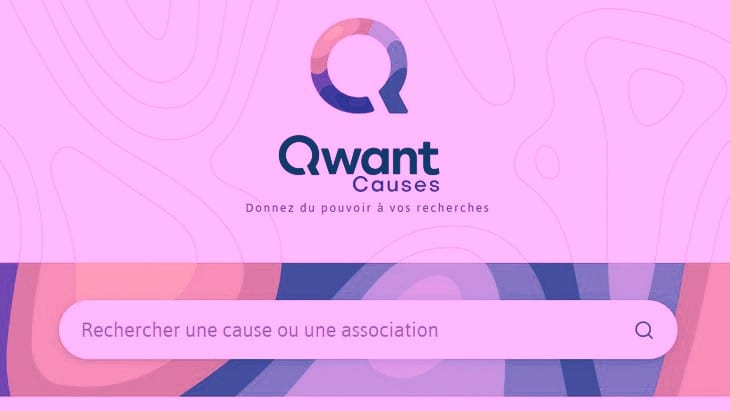Techno-logical : I tested Qwant for you

William Arata (H.05)
Asset manager at the Banque de France and holder of a master’s degree in research in monetary and financial economics at the University of Paris 1 Panthéon-Sorbonne, he is currently pursuing a continuing education in actuarial science.
How did you hear about Qwant?
A colleague, who was concerned about the protection of her personal data on the Internet, described this search engine to me as a European solution that respects the privacy of its users, unlike Google. I first tried Qwant on the device I use most often for online searches, my smartphone, but it wasn’t ideal.
So what didn’t you like about the mobile version?
A number of small things that make it awkward to read Qwant on a smartphone. When you do a keyword search, it brings up long blocks of text with no illustrations. That makes it harder to quickly prioritize the information. Unlike Google, Qwant does not offer videos or “front page” results, and it doesn’t suggest associated searches, which is a bit of a pity. And the images section is poorly presented: the visuals are piled on top of each other and not labeled.
What about on a computer?
Qwant’s themed search results are comparable to those of Google, with some differences in their ranking. But when you are searching for practical information, Google delivers more useful results. For example, if you are looking for a restaurant it displays the address directly, provides the location via Maps, and so on.
What are Qwant’s “pluses”?
Qwant sets itself apart with several innovations. The “Junior”, “Music” and “Causes” tabs bring you to specific engines dedicated to children’s content, music, and charitable initiatives. Qwant has also just introduced a new feature called “QOZ”, which you turn on by tapping a button at the top right of the screen. By activating it, the user chooses to display more ads; the additional revenue generated is donated to a cause chosen by the user. And I liked the “social” section in the column on the right side of the screen: it gives a quick overview of current Twitter comments on a given topic. In the “news” section, the articles are scrupulously classified in chronological order, from the most recent to the oldest, down to the minute. On the other hand, the “shopping” section is really not up to snuff. And lastly, Qwant shows you the trending searches of the day. But since they are not personalized in relation to my interests, I rarely found them useful.
In conclusion?
Despite these innovations, I still prefer Google. It makes it easier to search online, and that aspect takes precedence over my concerns about the protection of my data. On reflection, maybe the fact that a search engine uses my previous searches to quickly provide me with relevant and personalized results doesn’t bother me, in fact quite the opposite.
Published by Marianne Gérard

